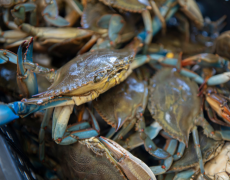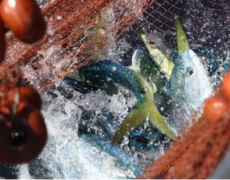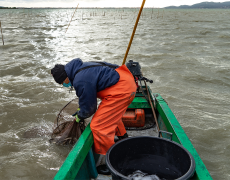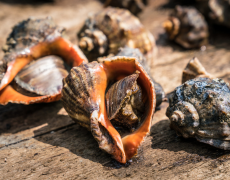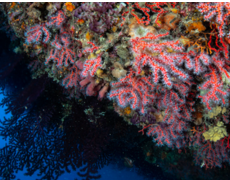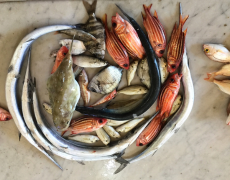Scientific advice and knowledge
Small-scale fisheriesRecreational fisheriesManagement measuresCapacity development and cooperation
|
Research programmes
Since 2018, research programmes have been included, through specific recommendations, in the GFCM work plan for both the Mediterranean and the Black Sea.
Research programmes are implemented in cases where an improvement in the sustainability and management of a specific fishery is expected to benefit from dedicated actions towards improving the quality and quantity of information on the resource, while addressing previously identified knowledge gaps and shortcomings in the relevant scientific/technical advice.
In all cases, the core principle is to take full advantage of ongoing research at the country level by providing a platform for coordination and filling the gaps with new activities and/or capacity-building support, generally aimed at providing the scientific basis for the determination of the most appropriate management measures in the context of relevant GFCM working groups (e.g. WGMEASURES) and subsidiary bodies.
Research programme | Blue crabs
Two large non-indigenous species of the so-called blue crabs (the American Blue Crab, Callinectes sapidus, and the Blue Swimming Crab, Portunus segnis) have been present in the Mediterranean since at least the first half of the 20th century.
To deal with population expansions and subsequent fisheries of these two crab species, the GFCM issued Recommendation GFCM/42/2018/7 on the implementation of a regional research programme on blue crab in the Mediterranean Sea. +info
Research programme | Common Dolphinfish
Common dolphinfish, or mahi-mahi (in Hawaiian), is a large pelagic and highly migratory species globally distributed in tropical and subtropical regions. Since ancient times, this species has been a fishing resource mainly targeted by small-scale fisheries taking advantage of their behavior of sheltering beneath floating objects.
In the Western and Central Mediterranean, four main coastal countries are involved in the dolphinfish fishery: Italy, Spain (only Balearic Islands archipelago), Tunisia and Malta, where this species has social and economic importance. +info
Research programme | European eel
European eel (Anguilla anguilla) is a migratory species with a unique life cycle. Between their spawning phase and their pre-reproductive stage, European eel migrate from the Northwest Atlantic to the coasts of their distribution range and continental waters.
European eels are declining globally due to a combination of natural causes and anthropogenic pressures impacting it and its habitats at different life stages. +info
Research programme | Rapa whelk
The rapa whelk is a non-indigenous species originating from the western Pacific, first observed in the Black Sea in 1947. Since then, the population of this gastropod has become established and expanded greatly, representing a significant revenue source for Black Sea countries, particularly for small-scale fishers.
Exported in large quantities to its native east Asia, the rapa whelk is currently fished close to its maximum sustainable limit – and in 2021 it was found to be in possible overexploitation. +info
Research programme | Red coral
Red coral (Corallium rubrum) has experienced a decrease in landings in the Mediterranean over the past 20 years and, in some areas, its shallow populations are nearly depleted.
In order to fill important knowledge gaps on the status of red coral in the region, CPCs at the 38th session of the GFCM agreed to the establishment of a research programme on red coral. +info
Pilot Project on Non-Indigenous Species in the eastern Mediterranean
Acknowledging the growing prevalence of Non-Indigenous Species (NIS) in the Mediterranean Sea, the GFCM Scientific Advisory Committee on Fisheries (SAC) agreed in 2021 to launch an in-depth reflection as well as a dedicated research programme to consolidate an Observatory.
The aims are to integrate all available information, foster engagement between relevant actors at the Mediterranean level, improve the understanding of the interactions of NIS with receiving ecosystems, as well as investigate effective management through fisheries management tools and/or nature-based solutions. +info


